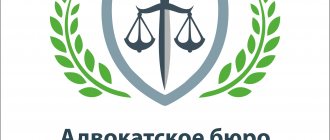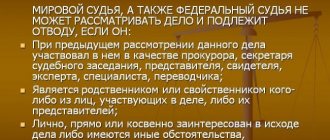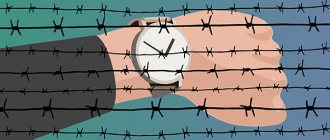New edition of Art. 199 Code of Criminal Procedure of the Russian Federation
1. When conducting a forensic examination in an expert institution, the investigator sends to the head of the relevant expert institution a resolution on the appointment of a forensic examination and the materials necessary for its production.
2. The head of the expert institution, after receiving the decision, entrusts the conduct of the forensic examination to a specific expert or several experts from among the employees of this institution and notifies the investigator about this. In this case, the head of the expert institution, with the exception of the head of the state forensic institution, explains to the expert his rights and responsibilities provided for in Article 57 of this Code.
3. The head of an expert institution has the right to return without execution the decision on the appointment of a forensic examination and the materials presented for its production, if this institution does not have an expert in a specific specialty or special conditions for conducting research, indicating the reasons for which the return is made.
4. If a forensic examination is carried out outside an expert institution, then the investigator hands the decision and the necessary materials to the expert and explains to him the rights and responsibilities provided for in Article 57 of this Code.
5. The expert has the right to return the decision without execution if the presented materials are insufficient to conduct a forensic examination or he believes that he does not have sufficient knowledge to conduct it.
Article 195 of the Code of Criminal Procedure of the Russian Federation. The procedure for appointing a forensic examination
- Having recognized the necessity of ordering a forensic examination, the investigator makes a decision on this, and in the cases provided for in paragraph 3 of part two of Article 29 of this Code, initiates a petition before the court, which indicates: 1) the grounds for ordering a forensic examination; 2) last name, first name and patronymic of the expert or the name of the expert institution in which the forensic examination should be carried out; 3) questions posed to the expert; 4) materials made available to the expert.
- Forensic examination is carried out by state forensic experts and other experts from among persons with special knowledge.
- The investigator familiarizes the suspect, accused, and his defense attorney with the decision to order a forensic examination and explains to them the rights provided for in Article 198 of this Code. A protocol on this is drawn up, signed by the investigator and persons who are familiar with the decision.
- A forensic examination in relation to a victim, except for the cases provided for in paragraphs 2, 4 and 5 of Article 196 of this Code, as well as in relation to a witness, is carried out with their consent or the consent of their legal representatives, which is given by these persons in writing. A forensic examination may be ordered and carried out before the initiation of a criminal case.
Commentary on Article 207 of the Code of Criminal Procedure of the Russian Federation
1. The factual grounds for conducting an additional examination entrusted to the same or another expert are insufficient clarity or completeness of the expert’s conclusion or the emergence of new questions in relation to the previously investigated circumstances of the criminal case.
2. Insufficient clarity should be understood as the impossibility of understanding the meaning and significance of the terminology used by the expert, the research methodology, the meaning and significance of the signs identified during the study of objects, the criteria for assessing the identified signs that cannot be eliminated by questioning the expert who carried out the examination at a court hearing.
An incomplete conclusion is one that does not contain answers to all the questions posed to the expert and does not take into account circumstances that are important for resolving the questions posed <1285>. ——————————— <1285> See: Resolution of the Plenum of the Supreme Court of the Russian Federation of December 21, 2010 N 28 “On forensic examination in criminal cases” // Bulletin of the Supreme Court of the Russian Federation. 2011. N 2.
3. The decision to order an additional forensic examination must indicate specifically what the incompleteness and lack of clarity of the previous expert opinions expressed, and whether there are grounds to doubt their correctness <1286>. ——————————— <1286> See: Determination of the Judicial Collegium for Criminal Cases of the Supreme Court of the Russian Federation dated October 24, 1995 // Bulletin of the Supreme Court of the Russian Federation. 1997. N 7.
4. An additional forensic examination is appointed only after the expert has given an opinion, if the lack of clarity or completeness of the conclusion cannot be eliminated by questioning the expert.
5. Depending on the nature of the issues and the volume of materials being examined, an additional examination may be carried out at a court hearing. Participants in the trial, at their request, with the consent of the court, have the right to be present during the expert examination carried out outside the courtroom, except in cases where the court, at the request of the expert, considers that this presence will interfere with the examination. The fact that a participant in the trial was present during a forensic examination outside the courtroom should be reflected in the expert’s report.
6. In cases where there is a need to resolve new issues in relation to previously examined objects, an examination is appointed in accordance with Article 195 of the Code of Criminal Procedure and its production is entrusted, as a rule, to the same expert, if the upcoming research does not go beyond the scope of his special knowledge <1287 >. ——————————— <1287> See: Resolution of the Plenum of the Supreme Court of the Russian Federation of December 21, 2010 N 28 “On forensic examination in criminal cases” // Bulletin of the Supreme Court of the Russian Federation. 2011. N 2.
7. When conducting an additional forensic examination, the expert resolves issues that have not previously been examined.
8. If an expert carries out a repeated forensic examination, he resolves issues that have previously been examined.
9. If doubts arise about the validity of the expert’s conclusion or if there are contradictions in the experts’ conclusions on the same issues, a repeat examination may be ordered, the production of which is entrusted to another expert.
10. An expert’s conclusion in which the conclusions are not sufficiently substantiated, the necessary methods and techniques of expert research are not applied or incorrectly applied, should be considered unfounded.
11. The court also has the right to order a re-examination if it establishes facts of violation of the procedural rights of participants in the trial during the appointment and conduct of a forensic examination, which influenced or could influence the content of the experts’ conclusions <1288>. ——————————— <1288> See: Ibid.
12. See also: commentary to Art. Art. 195 - 199, 202 - 205, 389.16 Code of Criminal Procedure of Russia.
Article 196 of the Code of Criminal Procedure of the Russian Federation. Mandatory appointment of a forensic examination
The appointment and conduct of a forensic examination is mandatory if it is necessary to establish: 1) the causes of death; 2) the nature and degree of harm caused to health; 3) the mental or physical state of the suspect, accused, when doubt arises about his sanity or ability to independently defend his rights and legitimate interests in criminal proceedings; 3.1) the mental state of a suspect accused of committing, at the age of over eighteen, a crime against the sexual integrity of a minor under the age of fourteen, to resolve the issue of the presence or absence of a disorder of sexual preference (pedophilia); 4) the mental or physical state of the victim, when doubt arises about his ability to correctly perceive the circumstances relevant to the criminal case and give evidence; 5) the age of the suspect, accused, victim, when this is important for the criminal case, and documents confirming his age are missing or are in doubt.
Everything about criminal cases
Go to the text of the Code of Criminal Procedure
Url Additional information:
Mandatory examination
- clause 1 196 of the Code of Criminal Procedure
if it is necessary to establish the causes of death
— clause 2 196 Code of Criminal Procedure
if it is necessary to establish the degree of harm to health
— clause 3 196 Code of Criminal Procedure
if there is doubt about sanity
- clause 3.1 196 Code of Criminal Procedure
for disorder of sexual preference (pedophilia)
- clause 3.2 196 Code of Criminal Procedure
examination is mandatory for signs of drug addiction
— clause 4 196 Code of Criminal Procedure
an examination is required if the victim is difficult to testify
— clause 5 196 Code of Criminal Procedure
examination is required if age is not established
Practical aspects
Mandatory production
examination and when it doesn't work
Article 196 of the Code of Criminal Procedure. Mandatory appointment of a forensic examination
Url Additional information:
- Part 1.2 144 Code of Criminal Procedure
are required to repeat the pre-investigation examination
- Part 2 159 Code of Criminal Procedure
a request for an examination cannot be refused
The appointment and conduct of a forensic examination is mandatory if it is necessary to establish:
1) causes of death;
Url Additional information:
— clause 7
Plenum No. 28 victim - his consent is required (general rule)
2) the nature and degree of harm caused to health;
3) the mental or physical state of the suspect, accused, when:
Url Additional information:
— clause 6
Plenum No. 6 doubt about sanity
- doubt about his sanity;
Url Additional information:
— clause 14
Plenum No. 1 for developmental delays, psychiatric examination
— or doubt in the ability to independently defend one’s rights and legitimate interests in criminal proceedings;
3.1) the mental state of a suspect accused of committing a crime against the sexual integrity of persons under 14 years of age over the age of 18, to resolve the issue of the presence or absence of a disorder of sexual preference (pedophilia);
Url Additional information:
— clause 2
Plenum No. 14 relevance to drugs, size only by examination
- clause 35.1
Plenum No. 14 drug addiction is established only by examination
3.2) the mental or physical state of the suspect, accused, when there is reason to believe that he is a drug addict;
4) the mental or physical state of the victim, when doubt arises about his ability to correctly perceive circumstances relevant to the criminal case or give evidence;
Url Additional information:
- P.5
Plenum No. 1 age must be established
5) The age of the suspect, accused, victim, when this is important for the criminal case, and documents confirming his age are missing or are in doubt.
Return to the text of the Code of Criminal Procedure
Seek advice
Article 200 of the Code of Criminal Procedure of the Russian Federation. Commission forensic examination
- A commission forensic examination is carried out by at least two experts of the same specialty. The commission nature of the examination is determined by the investigator or the head of the expert institution entrusted with the conduct of the forensic examination.
- If, based on the results of the research, the opinions of experts on the questions raised coincide, then they draw up a single conclusion. In case of disagreement, each of the experts who participated in the forensic examination gives a separate opinion on the issues that caused the disagreement.
Commentary on Article 199 of the Code of Criminal Procedure of the Russian Federation
1. Sending a decision and materials necessary for carrying out a forensic examination to an expert institution can be carried out by mail or by courier.
2. The head of the expert institution, or his deputy, or the head of a structural unit, certifies with a seal the expert’s signature explaining to him procedural rights, obligations and their responsibility for giving a knowingly false conclusion, as well as the expert’s signature under the protocol part, conclusions, photo tables and diagrams drawn up by him . If corrections or additions are made to the expert’s conclusion, a corresponding entry is made about this at the end of the document, also certified by the expert’s signature and seal.
3. Lack of a receipt explaining to the experts who carried out the forensic examination their rights and obligations and warning about liability for giving a knowingly false conclusion under Art. 307 of the Criminal Code, attached to the expert’s report, makes the expert’s report inadmissible evidence.
4. The expert’s conclusion is drawn up in at least two copies, one of which is handed over to the person or body that appointed the forensic examination, and the other remains in storage at the expert institution.
5. If a forensic examination is carried out outside an expert institution, the investigator (investigator, etc.) verifies the identity of the expert. The expert’s personal data is established (last name, first name, patronymic, day, month, year of birth, etc.).
6. The investigator (investigator, etc.) is certified in the specialty and competence of the expert by clarifying the position and work experience in it, as well as by familiarizing himself with the relevant documents (higher education diploma in a certain specialty), clarifying issues related to the methodology of the upcoming study, and etc.
7. Criminal liability for giving a knowingly false conclusion is provided for in Art. 307 of the Criminal Code.
8. See also: commentary to Art. Art. 57, 70, 166, 167, 195 Code of Criminal Procedure of Russia.
Article 201 of the Code of Criminal Procedure of the Russian Federation. Comprehensive forensic examination
- Forensic examination, which involves experts from various specialties, is complex.
- The conclusion of experts participating in a comprehensive forensic examination indicates what research and to what extent each expert conducted, what facts he established and what conclusions he came to. Each expert who participated in the production of a comprehensive forensic examination signs that part of the report that contains a description of the research he conducted and bears responsibility for it.
Article 202 of the Code of Criminal Procedure of the Russian Federation. Obtaining samples for comparative research
- The investigator has the right to obtain handwriting samples or other samples for comparative research from a suspect, accused, witness, victim, as well as in accordance with part one of Article 144 of this Code from other individuals and representatives of legal entities in cases where there is a need to check whether they left traces in a certain place or on physical evidence, and draw up a protocol in accordance with Articles 166 and 167 of this Code, with the exception of the requirement for the participation of witnesses. Obtaining samples for comparative research can be done before initiating a criminal case.
- When obtaining samples for comparative research, methods that are dangerous to human life and health or humiliating his honor and dignity should not be used.
- The investigator makes a decision on obtaining samples for comparative research. If necessary, samples are obtained with the participation of specialists.
- If obtaining samples for comparative research is part of a forensic examination, then it is carried out by an expert. In this case, the expert reflects information about the performance of this action in his conclusion.
Article 205 of the Code of Criminal Procedure of the Russian Federation. Expert interrogation
- The investigator has the right, on his own initiative or at the request of the persons specified in part one of Article 206 of this Code, to interrogate an expert to clarify his conclusion. Questioning an expert before presenting his/her conclusion is not permitted.
- An expert cannot be questioned regarding information that has become known to him in connection with the conduct of a forensic examination, if it does not relate to the subject of this forensic examination.
- The protocol of interrogation of the expert is drawn up in accordance with Articles 166 and 167 of this Code.
Article 207 of the Code of Criminal Procedure of the Russian Federation. Additional and repeated forensic examinations
- If the expert’s conclusion is insufficiently clear or complete, as well as if new questions arise regarding the previously investigated circumstances of the criminal case, an additional forensic examination may be ordered, the production of which is entrusted to the same or another expert.
- In cases where doubts arise about the validity of the expert’s conclusion or there are contradictions in the conclusions of the expert or experts on the same issues, a repeat examination may be ordered, the production of which is entrusted to another expert.
- Additional and repeated forensic examinations are appointed and carried out in accordance with Articles 195 - 205 of this Code.
professional criminal lawyer
in Moscow.
Additional and repeated examination
Lawyer Antonov A.P.
If any of the above-described conditions for the study of narcotic drugs were not met by the expert, one should apply for an additional or repeated forensic examination, indicating in the petition the experts’ failure to fulfill the obligation to conduct the study objectively, comprehensively and in full on a strictly scientific and practical basis. A request for a re-examination should be made when the expert violated the rules of the examination, did not indicate or describe the research methods, violated methodological recommendations, violated the rules of sampling, did not correctly determine the type of substance, did not provide original mass spectra and chromatograms, and verification information. In other cases, when the accused does not consider the conclusions of the examination clear and complete, it is necessary to obtain answers to additional questions - it makes sense to apply for an additional examination. For example, if the expert did not give direct and unambiguous answers to the questions posed, if the amount of a narcotic drug in the mixture has been established, but the possibility of its use for anesthesia (non-medical use) has not been established.
The grounds and procedure for appointing additional and repeat examinations are established by Art. 207 of the Code of Criminal Procedure, as well as in clauses 13 and 15 of the Resolution of the Plenum of the Supreme Court of the Russian Federation dated December 21, 2010 No. 28 “On forensic examination in criminal cases”: “In accordance with Part 1 of Article 207 of the Code of Criminal Procedure of the Russian Federation, the grounds for conducting an additional examination, entrusted to the same or another expert are insufficient clarity or completeness of the expert’s conclusion or the emergence of new questions in relation to previously investigated circumstances of the criminal case.
Insufficient clarity should be understood as the impossibility of understanding the meaning and significance of the terminology used by the expert, the research methodology, the meaning and significance of the signs identified during the study of objects, the criteria for assessing the identified signs that cannot be eliminated by questioning the expert who carried out the examination at a court hearing.
An incomplete conclusion is one that does not contain answers to all the questions posed to the expert and does not take into account circumstances that are important for resolving the questions raised” (clause 13 of the Plenum Resolution). “According to Part 2 of Article 207 of the Code of Criminal Procedure of the Russian Federation, if doubts arise about the validity of an expert’s conclusion or if there are contradictions in the conclusions of experts on the same issues, a re-examination may be ordered, the production of which is entrusted to another expert.
An expert’s conclusion in which the conclusions are not sufficiently substantiated, the necessary methods and techniques of expert research are not applied or incorrectly applied, should be considered unfounded.
The court also has the right to order a re-examination if it establishes facts of violation of the procedural rights of participants in the trial during the appointment and conduct of a forensic examination, which influenced or could influence the content of the experts’ conclusions” (clause 15 of the Plenum Resolution). Of course, you can question the expert’s opinion by obtaining the opinion of a specialist who will assess the compliance of the examination with the requirements of the law, its objectivity, clarity and completeness. The accused and his defense attorney can obtain such conclusions from non-state expert organizations.
The investigator and the court do not have the right to refuse to include a specialist’s opinion in a criminal case as evidence for the defense or to interrogate a specialist. According to Part 2.1 of Art. 58 of the Code of Criminal Procedure of the Russian Federation, the defense cannot refuse to satisfy a request to involve a specialist in the criminal proceedings in the manner established by this Code to clarify issues within his professional competence, except in cases where there are grounds for disqualifying the specialist (Article 61, Part 2, Article 70, Article 69 of the Code of Criminal Procedure). However, if the convicted person does not have the opportunity to turn to independent specialists, this does not mean that one should refuse to challenge the expert opinion and not present arguments that can be gleaned, among other things. in this edition.
In practice, there are cases when the court granted the defense’s requests to conduct a repeat forensic examination based on the above arguments. Also, when appealing a verdict, it is possible to have the verdict overturned as based on inadmissible evidence - expert opinion. For example, by Resolution of the Presidium of the Rostov Regional Court dated November 30, 2017 No. 44U-270/2017, the case was sent for a new consideration, including on the following grounds: “the conclusion of the chemical examination does not contain chromatograms illustrating the research carried out by the expert and confirming his conclusions . The methods by which samples were taken and the study was carried out were also not described by the expert in the conclusion. In this situation, the court’s conclusion that the chemical examination conclusion No. 422 of October 28, 2013 meets the requirements of the law and is admissible evidence cannot be considered convincing.”
Sincerely, lawyer Anatoly Antonov, managing partner of the law firm Antonov and Partners.
Still have questions for your lawyer?
Ask them right now here, or call us by phone in Moscow +7 (499) 288-34-32 or in Samara +7 (846) 212-99-71 (24 hours a day), or come to our office for a consultation (by pre-registration)!






